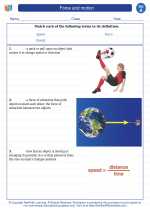Carbohydrates
Carbohydrates are one of the three macronutrients (along with proteins and fats) that provide energy for the body. They are essential for maintaining proper bodily functions and are found in a wide variety of foods, including fruits, vegetables, grains, and dairy products.
Types of Carbohydrates
Carbohydrates can be classified into three main types:
- Simple Carbohydrates: These are composed of one or two sugar units. Examples include glucose (found in fruits) and sucrose (table sugar).
- Complex Carbohydrates: These are composed of multiple sugar units linked together. Examples include starches found in foods like potatoes, rice, and bread.
- Dietary Fiber: This type of carbohydrate is not easily digested by the body and is found in foods such as fruits, vegetables, and whole grains.
Functions of Carbohydrates
Carbohydrates serve several important functions in the body:
- Energy Source: Carbohydrates are the body's primary source of energy, providing fuel for the brain, muscles, and other organs.
- Supporting Metabolism: Carbohydrates aid in the metabolism of fats and help regulate the body's use of protein.
- Digestive Health: Dietary fiber, a type of carbohydrate, supports digestive health by promoting regular bowel movements and maintaining a healthy gut microbiome.
Recommended Intake
The recommended intake of carbohydrates varies depending on factors such as age, sex, activity level, and overall health. In general, carbohydrates should make up about 45-65% of total daily calories. It's important to choose complex carbohydrates and sources of dietary fiber for optimal health.
Study Guide
To effectively study carbohydrates, consider the following key points:
- Understand the different types of carbohydrates and their sources.
- Learn the functions of carbohydrates in the body.
- Explore the recommended intake of carbohydrates for different populations.
- Identify sources of complex carbohydrates and dietary fiber in your diet.
Remember to review the material regularly and apply your knowledge to real-life examples to reinforce your understanding of carbohydrates.
Good luck with your studies!
[Carbohydrates] Related Worksheets and Study Guides:
.◂Science Worksheets and Study Guides First Grade. Force and motion
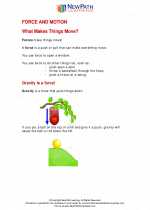
 Worksheet/Answer key
Worksheet/Answer key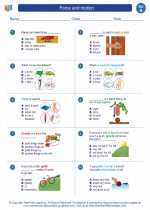
 Worksheet/Answer key
Worksheet/Answer key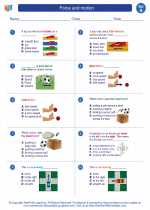
 Worksheet/Answer key
Worksheet/Answer key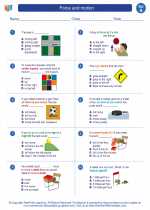
 Vocabulary/Answer key
Vocabulary/Answer key